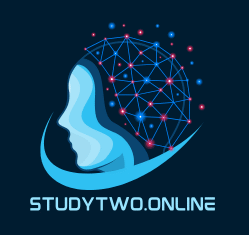Introduction to Educational Technology Jobs
Educational technology (EdTech) careers are at the forefront of revolutionizing the way we learn, combining innovative technologies with pedagogy to design compelling, accessible, and effective education experiences. From virtual classrooms to AI-powered personalized learning, EdTech professionals are in high demand as digital solutions are welcomed by schools, universities, and businesses. As we move into 2025, emerging trends such as artificial intelligence, immersive learning, and online learning are opening up interesting career paths in this exciting industry. In this blog post, we discuss the best education technology jobs, necessary skills, salary prospects, and trends for EdTech careers in 2025.

What Are Educational Technology Jobs?
Education technology careers involve positions that create, build, execute, and maintain technology-enabled learning solutions. These roles exist across K-12 schools, higher education institutions, corporate training, and EdTech firms, dealing with tools such as learning management systems (LMS), e-learning platforms, and education applications. EdTech experts integrate knowledge of education, technology, and user experience to improve teaching and learning.
Some of the major areas across EdTech careers are:
-
Instructional Design: Developing effective online courses and curricula.
-
E-Learning Development: Creating interactive digital content with authoring software.
-
Technology Integration: Assisting teachers to utilize tools such as Google Classroom or Canvas.
-
AI and Data Analytics: Creating data-driven personal learning algorithms and interpreting education data.
-
Product Management: Managing the development and promotion of EdTech products.
Why Educational Technology Jobs Matter in 2025
EdTech careers play a pivotal role in addressing the changing demands of learners and educators in an online environment. Here’s why such careers are flourishing in 2025:
1. Increasing Demand for Online Learning
The international EdTech market is expected to reach $404 billion in 2025, fueling the demand for individuals skilled in developing and maintaining digital learning platforms.
2. Advances in Technology
Artificial intelligence, virtual reality, and gamification are transforming education, giving birth to new jobs such as AI learning specialists and immersive content creators.
3. Remote and Hybrid Learning
The pandemic-accelerated transition to online and hybrid learning maintains the need for e-learning developers and LMS administrators.
4. Personalized Education
EdTech makes personalized learning possible, driving the demand for data analysts and instructional designers who can create adaptive content.
5. Career Flexibility
Numerous online EdTech jobs provide telecommuting, freelancing, and good pay, which attract various professionals.
Best Educational Technology Jobs in 2025
Following are some of the best EdTech careers, along with task sets, skill sets, and salary information (based on U.S. data):
1. Instructional Designer
-
Task set: Design courses online, create learning objectives, and write compelling content by using applications such as Articulate 360 or Adobe Captivate.
-
Skill set: Communication skills, e-learning authoring tools, and knowledge of learning theory.
-
Salary: $65,000–$100,000 per year (median: $82,000).
-
Prospects: Strong demand as institutions build online programs.
2. E-Learning Developer
-
Job Duties: Design interactive digital content, such as videos, quizzes, and simulations, for Moodle or Blackboard.
-
Requirements: Familiarity with HTML, JavaScript, and authoring tools, and multimedia design.
-
Salary: $60,000–$95,000 per year (median: $78,000).
-
Prospects: Increased demand for engaging e-learning modules in business and academic environments.
3. Learning Management System (LMS) Administrator
-
Responsibilities: Coordinate platforms such as Canvas or D2L, resolve problems, and instruct teachers on system utilization.
-
Skills Required: Technical assistance, LMS software knowledge, and training users.
-
Pay: $55,000–$85,000 per year (median: $70,000).
-
Prospects: Critical for schools and organizations that use digital learning platforms.
4. EdTech AI Specialist
-
Tasks: Create AI-based tools for individualized learning, such as adaptive testing or student support chatbots.
-
Skills Required: Machine learning, Python, and experience in educational data analytics.
-
Salary: $90,000–$140,000 annually (median: $115,000).
-
Outlook: Emerging role driven by AI adoption in education.
5. Educational Technology Consultant
-
Responsibilities: Advise schools or companies on integrating technology, from selecting tools to training staff.
-
Skills Needed: Project management, pedagogy, and familiarity with EdTech trends.
-
Salary: $70,000–$110,000 annually (median: $90,000).
-
Outlook: Strong demand as institutions seek expertise in digital transformation.
Key Skills for Success in EdTech Jobs
To be successful in education technology professional careers, individuals must have a combination of technical, educational, and interpersonal skills:
-
Technical Competency: Proficiency with tools such as Articulate Storyline, LMS systems, or coding skills (e.g., Python for AI positions).
-
Pedagogical Awareness: Familiarity with learning theories, for example, Bloom’s Taxonomy, to create powerful learning experiences.
-
Creativity: Designing interesting, interactive content that attracts learners.
-
Data Analysis: Analyzing student performance data to enhance learning outcomes.
-
Communication and Collaboration: Collaborating with developers, educators, and stakeholders to align technology with educational objectives.
Top Trends Transforming Educational Technology Careers in 2025
The EdTech industry is changing dynamically, powered by technology and societal changes:
1. AI and Personalized Learning
Artificial intelligence (AI) tools such as adaptive learning software (e.g., DreamBox) adapt content to suit the specific needs of individual students, thereby creating a demand for AI experts and data analysts in education.
2. Immersive Learning with VR and AR
Virtual and augmented reality are enriching training and classroom life, fueling careers for VR content developers and instructional designers.
3. Education Gamification
Game-learning platforms such as Kahoot! or Classcraft increase participation, necessitating game development skills for those with gamification experience.
4. Remote and Hybrid Learning Growth
The ongoing expansion of online learning continues to fuel the need for LMS administrators, e-learning developers, and virtual training experts.
5. Emphasis on Equity and Accessibility
EdTech is placing an emphasis on inclusive design, designing jobs for accessibility experts who verify digital content is WCAG (Web Content Accessibility Guidelines) compliant.
Challenges in EdTech Careers
EdTech careers, though popular, experience challenges:
-
Rapid Technological Change: Adapting to new tools calls for constant learning.
-
Solution: Pursue professional development on platforms such as Coursera or EdSurge.
-
-
Budget Limitations: Schools can be short of funds to implement EdTech tools.
-
Solution: Push for grants or low-cost tools.
-
-
Resistance to Technology: Educators are hesitant to adopt technology.
-
Solution: Offer training and showcase value through pilot projects.
-
-
Job Competition: In-demand jobs receive a high number of applications.
-
Solution: Develop a robust portfolio and connections through conference attendance.
-
How to Begin a Career in Education Technology
Prospective EdTech professionals can use these steps to join the profession:
-
Identify a Role: Select a specialization, such as instructional design or LMS administration, depending on interests and aptitude.
-
Pursue Education: Earn a degree in education, instructional technology, or computer science. E-learning design certificates or AI certificates are also beneficial.
-
Gain Technical Skills: Acquire proficiency in tools such as Articulate 360, Canvas, or Python via online training or bootcamps.
-
Build a Portfolio: Highlight projects, e.g., e-learning modules or LMS installations, on sites like LinkedIn or GitHub.
-
Network and Gain Experience: Become a member of communities like ISTE (International Society for Technology in Education), visit EdTech conferences, and apply for internships or freelance projects.
Conclusion
Ed-tech jobs represent compelling, high-impact careers for those who want to combine education and innovation. From curriculum designers developing innovative courses to AI experts individualizing learning, these professionals are defining the education landscape in 2025. With competitive compensation, work-from-home opportunities, and a chance to impact the world, EdTech is the perfect profession for tech-enabled educators and developers. By acquiring relevant skills, building a portfolio, and staying current with trends like AI and VR, you can thrive in this fast-growing industry and contribute to transforming learning worldwide.
